Simultaneous Population Reform Speak-Outs Tomorrow 7 May
Kelvin Thomson, the Federal Member for Wills, Dick Smith and Sustainable Population Australia present...
Kelvin Thomson, the Federal Member for Wills, Dick Smith and Sustainable Population Australia are proud to present Australia's first ever Simultaneous Population Forums.
For the first time across Australia, leading politicians, academics and community figures are converging in Canberra, Sydney, Melbourne, Brisbane, Perth, and Adelaide to discuss the issue of runaway population growth and its implications on our environment, economy, liveability and way of life.
Recent projections indicate that Australia's population will reach 36 million by 2050. If this is allowed to happen it will mean Melbourne's population will increase by 78.4% and reach almost 7 million people, Sydney's population will soar by 61% and become a city of 7 million people, Brisbane's population will go through the roof by 114% and hit almost 4 million, Perth will grow by 116% and reach 3.3 million people, Adelaide's population will rise by 42.6% and become a city of 1.6 million, Canberra's population will increase by 50% and Hobart's population will rise by 34.9%.
The impact on our major cities will be devastating- declining housing affordability, traffic congestion, demand on already strained natural resources such as water, spiralling cost of living, loss of local amenity and liveability.
Runaway population growth is the underlying cause of the major problems we now face. If left unchecked, runaway population growth will lead to our major cities becoming overcrowded concrete jungles.
The impact of a 60% increase in Australia's population on ournative wildlife will be catastrophic. Already over 200 species of Australia's birds are under threat- 30% of our 760 species.
The Australian Government has promised to cut carbon emissions by 60% over the next 40 years,and all the science is saying we need to cut them by 80% to tackle global warming. How are we supposed to do that if our population is going up by 60% at the same time? It's pretty hard to reduce your carbon footprint when you keep adding more feet.
These forums seek to encourage further debate and discussion on the type of Australia we want to leave behind for future generations. Our generation has an obligation to pass onto our children and grandchildren a world in as good a condition as the one our parents gave to us.
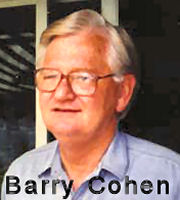
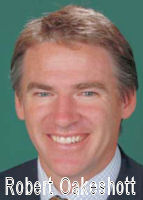
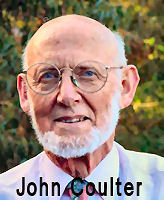
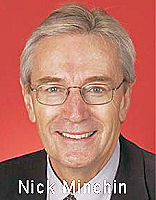
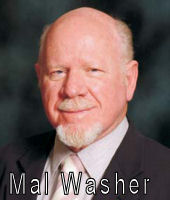
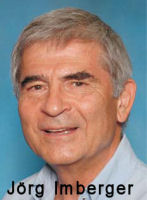
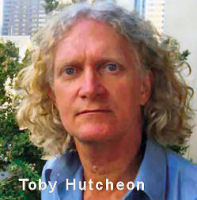
SPEAKERS
Mark O'Connor, Canberra Forum
Mark O'Connor (b. 1945) is a professional poet and environmental writer with a special interest in population. He has taught at several universities, has published 16 books of verse, including books on the Australian Alps, the Barrier Reef, Blue Mountains, rainforests, and the Pilbara, and is the editor of Oxford University Press's much reprinted Two Centuries of
Australian Poetry.
He was the Australian National University’s H C Coombs Fellow in 1999, and thereafter a Visiting Scholar in its Department of Archaeology and Natural History, Contributing editor of Oxford University Press's Protected Area Management: Principles
and Practices (2001). He is a frequent voice on a range of ABC radio programs. His most recent books on population are This Tired Brown Land (1998) and the best selling Overloading Australia: How governments and media dither and deny on population, by Mark O'Connor and William Lines.
Mark's website is at www.australianpoet.com/about.html
Barry Cohen, Canberra Forum
Barry was the Federal Member for the seat of Robertson from 1969 to 1990 and held the position of Minister for Arts, Heritage and Environment from 1983 to 1987. He is an author of 8 books including, Life of the Party, How to Become Prime Minister, Life with Gough, Whitlam to Winston and What About the Workers. Barry has been a columnist for The Australian, The Bulletin, the Financial Review, Time, and the Sydney Morning Herald among others.
Dick Smith, Sydney Forum
Dick Smith is one of Australia's most well known and respected personalities. In 2005 the National Trust nominated him as one of 'Australia's Living Treasures.” Businessman, entrepreneur, adventurer, philanthropist, aviator and a passionate advocate for the environment, Dick is active in many fields of public life. He talks and travels widely all over the country and is never shy to take on difficult topics—from aviation safety to supporting refugees and the fair treatment of David Hicks. When Dick talks, people listen. They may not always agree, but they never doubt his sincerity. His latest interest is in initiating a debate on Australia's population policy, sparked by his concern for the future his grandchildren will face.
Robert Oakeshott Independent MP, Sydney Forum
Robert Oakeshott is the Independent MP for Lyne (Mid North coast NSW).
Rob first entered state parliament as member for Port Macquarie in November 1996 at just 26 years of age. He remained in State politics until August 2008 when he resigned to run for the Federal byelection of Lyne in September of the same year.
Rob won the seat of Lyne with a convincing result and entered into federal politics. He is 1 of only 3 unaligned members in the House of Representatives in Australia today.
During his political career Rob has focused on the needs of regional communities and how they play their part in the broader Australian policy and political landscape.
He is currently a member of the House of Representatives Committee on Education and Training and the Joint Standing Committees on Foreign Affairs, Defence and Trade and on Cyber Safety.
Rob has a bachelor of laws and a bachelor of arts with honours. He is married with 3 and a half children and currently represents one of the fastest growing regions in Australia where the daily policy challenges of population versus environment and lifestyle are front and centre.
Kelvin Thomson, MP, Federal Member for Wills, Melbourne Forum
Kelvin was born in Coburg in 1955 and went to school at Pascoe Vale North Primary School, later winning a scholarship to Essendon Grammar School. He has first class honours degrees in Arts and Law (winner of the Supreme Court Prize 1987) from the University of Melbourne.
Before entering Parliament Kelvin worked for the Commonwealth Public Service, as an electorate officer, project officer for the Commonwealth Ombudsman and principal project officer for Australia Post.
He joined the ALP in 1975. He was elected as a Coburg councillor in 1981 and served two terms as deputy mayor until 1988 when he was elected to the Victorian Parliament as the Member for Pascoe Vale He was re-elected in 1992 and served in the Shadow Cabinet from 1992-1994.
In 1996 he was elected to the Federal Parliament as the Member for Wills. From 1998 to March 2007 Kelvin served in a range of Shadow Ministries, including Assistant Treasurer, Environment and Heritage, Regional Development, Roads and Housing, Public Accountability, Human Services and Attorney General.
In November 2007 Kelvin was re-elected to the Federal Parliament as Member for Wills. He is Chair of the Joint Standing Committee on Treaties.
Barry Jones
Barry Owen Jones, AO, is one of Australia's living treasures as well as a writer, broadcaster and former Labor politician. His career has spanned education, film, politics, civil liberties, constitutional change and 'the knowledge society'.
Barry represented the federal seat of Lalor (1977-98) and in the Hawke Government became Australia's longest serving Science Minister (1983-90). He served as National President of the Australian Labor Party 1992-2000 and again in 2005-06.
In 1985 he became the only Australian Minister invited to address a Summit meeting of the 'Group of Seven' northern industrial powers, in Ottawa. In 1987 he chaired OECD's review of the Yugoslavian economy.
In June 1990 he was part of an international think tank invited to investigate 'perestroika' in the USSR and make recommendations to Mikhail Gorbachev.
He was a member of the Executive Board of UNESCO in Paris 1991-95, Vice President, World Heritage Committee 1995-96 and a consultant for OECD .
He is the only person to have been elected as a Fellow of all four Australian learned Academies: Technological Sciences and Engineering (FTSE) in 1992, the Humanities (FAHA) in 1993, Science (FAA) in 1996, and Social Sciences (FASSA) in 2003.
His books include Macmillan Dictionary of Biography 1981, Sleepers Wake! Technology and the Future of Work 1982, Living by our Wits 1986, Barry Jones' Dictionary of World Biography 1994, 1996, 1998. His autobiography, A Thinking Reed, was published in October 2006.
Barry currently serves on the boards of CARE Australia, the Macfarlane Burnet Institute, The Centre For Eye Research, Australia and Victorian Opera and chairs Vision 2020 Australia and the Port Arthur Historic Site Management Authority. He is currently a Professorial Fellow at the University of Melbourne.
Katharine Betts
Adjunct Associate Professor Katharine Betts is with the Sociology Discipline at Swinburne University of Technology. She has been doing research in population studies for over thirty years, beginning with fertility and family planning and then the politics of immigration policy.
Her major work is an analysis of the politics of Australian immigration published in Ideology and Immigration (MUP, 1988) and in The Great Divide (Duffy and Snellgrove, 1999), as well as in a number of journal articles. Recent articles include studies of public attitudes to population growth (2010), the effects of immigration and fertility on demographic ageing
(2008), and the politics of the growth lobby in Australia (2006).
In 1993 she helped found the quarterly demographic journal People and Place; she and Bob Birrell are the editors. She served on the National Council of the Australian Population Association from 1996 to 2000, and from 2002 to 2006.
Toby Hutcheon, Brisbane Forum
Toby Hutcheon has worked on environmental issues for nearly 20 years. He started at Greenpeace as a campaigner on the Nuclear Free Seas campaign opposing nuclear powered and armed ship visits to Australia- dividing his time between the Greenpeace office and the bows of nuclear warships.
In the late 80's he set up the Direct Action Unit, setting in train Greenpeace Australia's high profile direct actions program.
He subsequently ran Greenpeace Communications Division and was a member of the Greenpeace Olympics team which initiated the idea of the 'green' Sydney Olympics, working closely with the NSW Government to secure the games for Sydney.
Toby moved to Europe in 1996 working on the Chernobyl Campaign for Greenpeace International in Moscow.
He returned to Australia in 1997 to coordinate the successful campaign opposing a second Sydney airport at Holdsworthy.
Since that time, Toby has worked for the NSW Government on waste issues and ran a consultancy advising business, government and communities on zero waste initiatives.
Toby joined the Queensland Conservation Council in 2004. QCC is the peak environment organisation in Queensland, supporting over 70 groups around the state and specifically focuses on climate and water issues, two of the most significant issues affecting our future.
He believes that we can all make a difference.
Jane O'Sullivan
Dr. Jane O'Sullivan is a member of the National Executive of Sustainable Population Australia. She has worked as an agricultural scientist with subsistence farmers in developing countries, and has been actively involved in a range of environmental and development organisations.
These experiences have affirmed her view that population stabilization is the key factor on which positive social and environmental outcomes depend.
She is currently applying her scientific expertise to population issues, particularly the economic implications of population growth rate.
Larissa Waters, Queensland Forum
Larissa Waters is the Australian Greens lead Senate candidate for Queensland in the 2010 federal election. Larissa is an environmental lawyer who has worked in the community sector for 8 years advising people how to use the law to protect the environment.
Larissa lives in Brisbane with her partner and their daughter.
John Coulter, Adelaide Forum
Dr John Coulter has achieved a lifetime of environmental work from the mid 1950s. He is a Founder member of Conservation Council of South Australia (1971) and former President (1984), Councillor of the Australian Conservation Foundation 1973 – 1990 and from 2003 to present and former Vice President, Australian Democrat.
John was a Senator for South Australia 1987 – 1995 and Leader 1990 – 1993. He introduced first legislation to control ozone depleting substances, first national legislation to protect threatened species and in 1988 the first major Senate Inquiry into Climate Change. He is a former National President of Sustainable Population Australia and edited SPA Newsletter from 1990 – 1996.
Bob Such, Adelaide Forum
Dr Bob Such has been the Member for Fisher since 1989 and independent since 2000. He is a former Minister for Employment, Training and Further Education and Minister for Youth Affairs and a former Deputy Speaker and Chairman of Committees and Speaker of the House of Assembly. He has a PhD in environmental politics, a BA (Hons) majoring in economics, a Diploma of Teaching and a Diploma of Education.
He has been a member of several Parliamentary Standing Committees (Economic and Finance, Social Development, Environment, Resources and Development) and chaired various Select Committees – Youth Justice, Cemeteries, Education.
Nick Minchin, Adelaide Forum
Senator Nick Minchin has served as a Senator for South Australia in the Commonwealth Parliament since 1993, having been re-elected in 1998 and 2004.
Following the Federal election in November 2007, Senator Minchin was elected by his colleagues as Leader of the Opposition in the Senate. He has served as Shadow Minister for Defence from 2007-2008, Shadow Minister for Broadband, Communications and the Digital Economy from 2008-2009 and the Shadow Minister for Resources and Energy 2009-2010.
In March 2010, Senator Minchin announced his decision to stand down from the Opposition front bench and as Leader of the Opposition in the Senate and that he would not be recontesting the 2010 Federal Election.
Senator Minchin served in the Howard Cabinet for 9 years. He was the Minister for Finance and Administration from 26 November 2001 until 24 November 2007 and is Australia’s longestserving Finance Minister.
Senator Minchin was Leader of the Government in the Senate from January 27, 2006 until November 24, 2007. He was Deputy Leader of the Government in the Senate from October 7, 2003 until January 27, 2006.
Senator Minchin also served as the Minister for Industry, Science and Resources from 1998 to 2001 and Special Minister of State and Minister Assisting the Prime Minister from October 1997 until October 1998.
When the Coalition won Government in March 1996, Senator Minchin was appointed Parliamentary Secretary to the Prime Minister with two specific responsibilities, making the Native Title Act more workable and implementing the Government's policy to hold the Constitutional Convention.
From 1994 to 1996 he was the Parliamentary Secretary to the Leader of the Opposition.
Dr Michael Lardelli, Adelaide Forum
Michael Lardelli is Senior Lecturer in Genetics at The University of Adelaide. Since 2004 he has been an activist for spreading awareness on the impact of energy decline resulting from oil depletion. He has written numerous newspaper articles on the topic, has delivered ABC Radio National Perspectives and has spoken at events organised by the South Australian
Department of Trade and Economic Development and others. He regularly translates into English the blog of Prof. Kjell Aleklett, the President of the international arm of the Association for the Study of Peak Oil and Gas (ASPO). He has lectured on "peak oil" to students in the Australian School of Petroleum and recently co-authored an article in the scientific journal
Energy Policy which shows that the all time peak of world oil production was probably in July 2008.
Michael has two young children and his initial interest in population stemmed from the threat posed to agricultural production by restricted oil availability. Consequently he has written a number of online articles on population that have been carried by the websites Online Opinion and Energy Bulletin.
Mal Washer
Mal Washer was born in 1945 and grew up on the family farm at Capel, in the south west of Western Australia. He completed his Bachelor of Medicine at the University of Western Australia and started practising medicine in the northern suburbs of Perth in 1972.
After 'retiring' from a successful career in medicine, which included establishing one of the major single private primary care facilities in Australia, Dr Mal Washer entered federal politics in 1998.
Aside from medicine, Mal is passionate about science, innovation and the environment, and this is reflected in his appointments in Parliament:
... Deputy Chair of the Standing Committee on Climate Change, Water, Environment and the Arts; ... Chair of the Policy Committee on Climate Change, Water, Environment and the Arts; ... and previously on various Backbench Policy Committees including: Environment and Heritage, Health and Ageing, Small Business, Tourism, Sport and the Arts and Industry, Tourism and Resources.
He is also Vice Chair of the Population Development Group, Chair of the Drug Law Reform; and is involved in the Fertility Preservation Parliamentary Support Group, the Disability Support Group, the Diabetes Support Group, the Schizophrenia Support Group and the Prostate Cancer Support Group.
Jorg Imberger
Jörg Imberger is the Director at the Centre for Water Research and Professor of Environmental Engineering at the University of Western Australia (UWA). Imberger received his PhD at the University of California, Berkeley in 1970 and became Professor of Environmental Engineering at UWA in 1979.
His main research interests are in the motion and mixing in lakes, estuaries and coastal seas in response to both natural forces such as tides, meteorological surface fluxes, river inflows and outflows as well as anthropogenic forcings such as effluent buoyant jets, bubble plumes and mechanical mixers, the effect of such motions and mixing on ecological systems residing in the water bodies and the application of this combined knowledge to the sustainable management of such water bodies.
Professor Jorg Imberger is an internationally recognised and respected environmental engineer. He was named Western Australia Scientist of the Year in the Premier’s Science Award in 2008 and was also recently elected a fellow of the Royal Academy of Engineering (UK) and inducted to the US National Academy of Engineering and American Geophysical Union. The
2007 ASLO A.C. Redfield Lifetime Achievement was also awarded to Imberger for his work on physical limnology. In 1996 he was awarded the Stockholm Water Prize and in 1995 the Onassis Prize for the Environment for his contribution to environmental issues. Imberger has continued to work in the area of water quality management in lakes, rivers and estuaries. He is a fellow of the Australian Academy of Science, the Australian Academy of Technological Science and
Engineering, the International Water Academy, the Argentinean Academy of Engineering and the Royal Society of Arts. In 1992 he was made a Member of the Order of Australia and in 1996 was awarded the Western Australian Citizen of the Year. Imberger is the recipient of numerous local, national and international awards. In 2004 he received the Henderson Oration, James N. Kirby Award, the Kernot Medal, the Clunies Ross National Science & Technology Award, the Peter Nicol.
SPA
SPA began its life in Canberra in 1988 as "Australians for an Ecologically Sustainable Population", with no more than a dozen members as its co- parents. It is now a national organisation of 1200 members with branches in all states and the ACT, and now has the slightly revamped name of "Sustainable Population Australia".
Its formation resulted from a growing consciousness that human impact was destroying our natural environment and that we needed to limit human population to reduce that impact and establish a balance with the environment, hence our logo with scales showing a human being and a tree in perfect equilibrium.
With that as our aim, SPA has publicly argued that:
- Australia needs a population policy that results in the stabilisation and then reduction of population numbers.
- Australia must limit its migration intake and remove pro-natalist policies.
- immigration and humanitarian categories should be kept separate in determining the nation's intake.
- although we cannot take responsibility for all the refugees in the world, we can accept more if we limit the skilled migrate intake.
- any shortage of skilled labour should be addressed by Government investing more money into training the existing population.
- race must not be a factor in the choice of people who migrate to Australia.
- we have a moral obligation to address population pressures at an international level by increasing the foreign aid budget.
The Speakers - some comments
Some of the speakers may come as a surprise, since two or three have previously not been very supportive of population reform - or their organisations have not followed through.
We can only hope that this time they will stand up and be counted at this breakfast and then in the future. It would be interesting to comment on particular speakers but we won't do that here because the event itself is monumental and who, caring about Australia's environment and democracy, would not wish this forum every success?
A Word about SPA and SPA Victoria
SPA is not perfect and is not perfectly democratic or fair, however there are no other organisations in Australia (apart from candobetter.org) and now some new political parties with a focus on stopping population growth. If you want to make a difference to population numbers in Australia, consider joining SPA and supporting fairness and democratic participation at National and State SPA elections. All State SPA branch offices need harder workers, prepared to help with holding meetings, minute taking, distribution of information to members and the public and organising events and structures. The National Executive needs people who are prepared to help the Branch Officers and to further democratic and active participation.
Sheila Newman, a Candobetter writer, began the SPA Branch in Victoria around 1994 and helped organise the above Population Reform Forum in Victoria in the absence of the current Victorian President, Jill Quirk, who is overseas, but whose ability to connect with other environmental organisations and to engage with social and environmental activists, should be recognised here and throughout SPA. In Victoria, getting behind Jill Quirk and helping her with the work she does, notably the administrative and clerical jobs, would further the population policy reform cause enormously.
Victoria is the original engine of growth lobby politics in Australia, therefore the SPA Branch here is particularly important, as is Kelvin Thomson's work which has done so much to bring this life-and-death issue into the light.
The next Victorian SPA AGM will be on the July 22nd at 7.00pm, 2010 at North Melbourne Library.

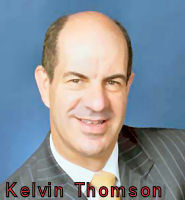
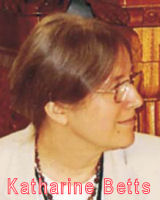
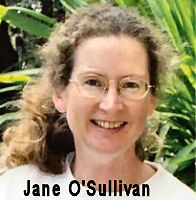
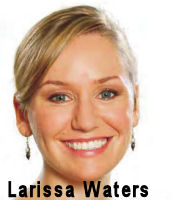
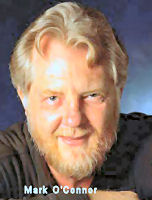
Recent comments